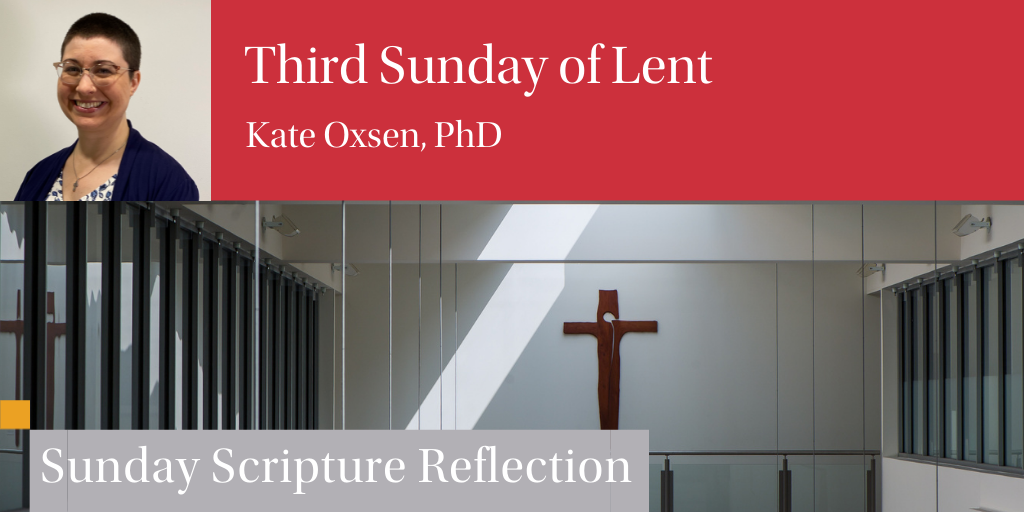

Readings:
Reading I: Exodus 3: 1-8a, 13-15
Psalm: 103: 1-4, 6-8, 11
Reading II: 1 Corinthians 10:1-6, 10-12
Gospel: Luke 13: 1-9
The season of Lent is a time for contemplation and reflection. Over time, though, Lent has transformed into a season of self-flagellation and condemnation for many. This leads people to focus on their sins and their faults during Lent. But is this what this season is truly about? Is this the best way to cultivate and fertilize the ground around us (Lk 13:8)?
On Ash Wednesday we are reminded to “Repent and believe in the Gospels”. The command to “repent” is often misunderstood to mean something more like “confess your sins.” Yet the word repent in the Gospels is not inherently connected to sin. Repent means to change one’s mind – to be converted. It is a call to actively change one’s heart and life. Recognizing and trying to atone for past wrongdoings can be a part of this change, but it is not the main event. It is merely a step on the way to the main event, which is new life.
The book of Exodus tells an incredible story of a people’s journey from slavery to liberation. It is also the story of a new creation, namely, the creation of the nation of Israel. This creation leads the Israelites into a new life of deep intimacy with God. Today we read about Moses’ first step on that journey with this story of the burning bush.
Moses easily could have left the bush to burn. After all, he was in the middle of his workday! But his curiosity got the better of him and he chose to approach, not knowing that this burning bush was God reaching out to him. By approaching the blazing fire, then, Moses enters an encounter with God. This choice would change the course of Moses’ life and bring him into a deeper intimacy with God and with his community.
Like Moses, God reaches out to all of us with many “burning bushes” throughout our lives. These burning bushes are moments when God calls to us, asking us to perform some act of service. For Moses, this act of service was leading the people of God out of Egypt – and out of oppression. This is a considerable task, indeed. But not all burning bushes ask so much of us. A burning bush moment can be as simple as noticing a person on the street who needs help. We can feel in our hearts that we need to respond. So, we approach the burning bush, ready to serve and grow closer to God through this task.
Sometimes, though, these burning bushes might intimidate or frighten us. We may be called to intervene in an intense conflict or to sacrifice something important to help another. It can be easy to ignore that burning bush and hope someone else will see it. We may even end up thinking about it later in the day and feeling regret over our choice. When this happens, all we can do is learn from past mistakes (1 Cor 10:8), forgive ourselves, and move forward.
Lent offers us a special time to notice the burning bushes that God sends our way. Our Lenten practices of almsgiving and the Corporal Acts of Mercy are some ways we can practice responding to the calls around us. Deepening our prayer lives makes us more attuned to the way God calls us. In turn, we grow more sensitive to the burning fires that surround us in our daily lives. Lent is meant to be a time when we grow closer to God. Serving our human family and all God’s creation is an important and powerful way we can do this. May Moses’ example inspire us to respond to the burning bushes in our lives so that we can grow closer to God and, in doing so, find new life.